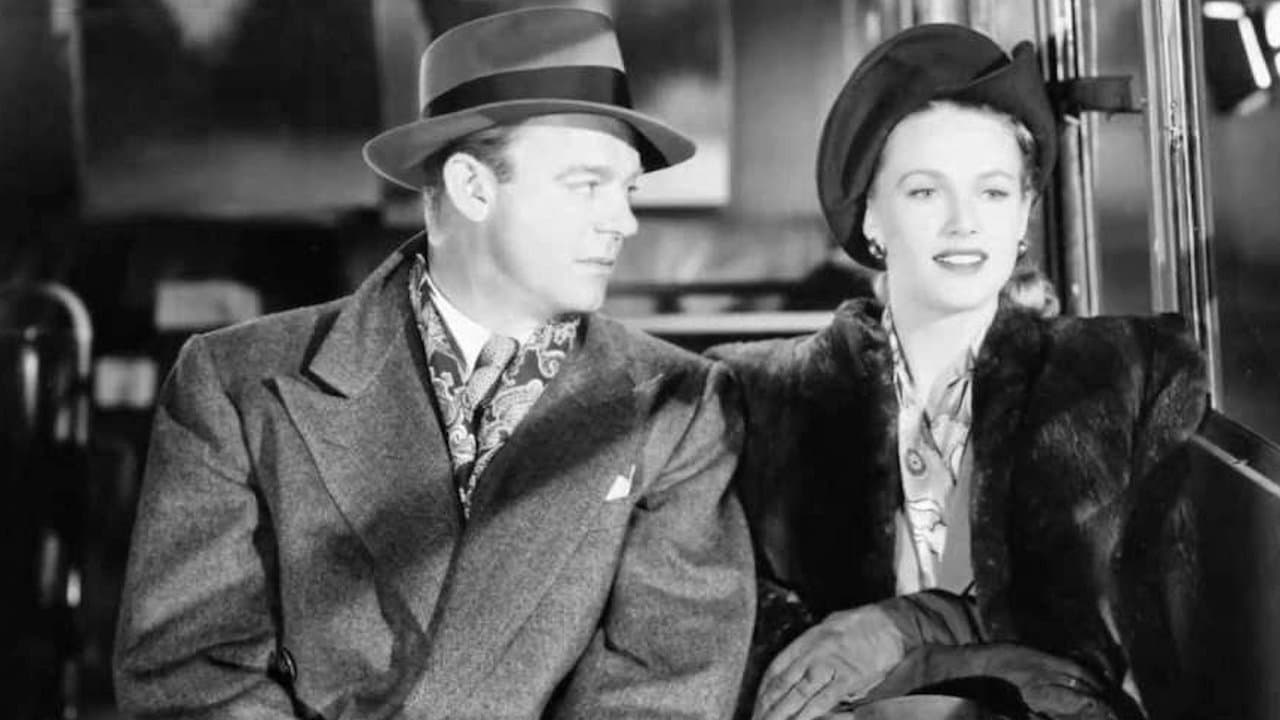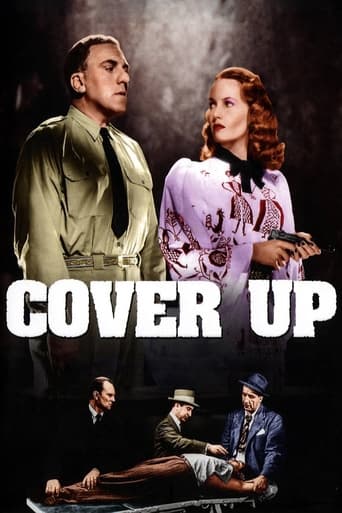

I first came across "Cover Up" way back in 1949 when it appeared at a Saturday afternoon matinée yet, on first release! This 13-year-old was most impressed. I found the characters intriguing and the murder mystery plot both thrilling and ingenious. All elements in fact were handled with considerable finesse by director Alfred E. Green and his cast of seasoned players. The ingrown small-town setting seemed ideal for both its noirish atmosphere and its ability to provide a conflict between the local citizens, anxious to keep small-town affairs within the community, and outside insurance investigator, Dennis O'Keefe, equally anxious to bring the true facts to light. Script-wise, the investigator's zeal seemed a little unconvincing, but I let it pass, otherwise we would have no story. O'Keefe's opposite number in the plot is William Bendix, who plays the local sheriff with just the right blend of suppressed antagonism and official non-helpfulness. And then, caught in the middle, we have the lovely heroine, Barbara Britton. All told, a satisfying thriller with only one discordant note in the chain-smoking O'Keefe who no longer seems such an admirable hero in our present society. (The Geneon DVD release rates at least 9/10).
... View MoreShortly before Christmas the most hated citizen in a small town dies by gunshot wound, declared by the law to be a suicide. Into town comes insurance investigator Sam Donovan (Dennis O'Keefe) to investigate the death and see if all loose ends are tied up since the deceased has a 20K life insurance policy - about 200K in today's money. Nothing could be less conclusive than this investigation. When Sam goes to talk to the town sheriff and ask about the weapon, the sheriff (William Bendix) says it is missing. When Sam asks about the bullets that killed him, the sheriff says the coroner left them in the deceased since it was obvious what killed him and how he died. Only when Sam threatens to get a court order does the sheriff produce the bullets.In other words, if the sheriff was trying to deflect suspicion of this being anything but a suicide his obvious lies and stonewalling has had the expected opposite effect. In fact everybody in town is stonewalling Sam. Thinking this could be murder, Sam continues to dig, and continues to get furtive glances and obvious lies from everybody in the town. It also turns out that the deceased was just plain mean and everybody from the sheriff on down had a motive to kill him. Meanwhile Sam is having a serious romance with the daughter of the town banker who also had a motive to kill the insured.What are the odd devices in this film? The hated deceased/insured guy is never seen. He is dead before the film begins and we never see him in flashback. There is another character who turns out to be important to the plot who is never seen - the town doctor who was out of town but has a heart attack shortly after returning who is talked about in the most glowing of terms by everybody. Again - never seen in live action or flashback.So we have a death that may be murder against the backdrop of a small town Christmas post-war, the descriptions by the townspeople of two dead people who seem to have had opposite personalities but whom we never see for ourselves, and all of the townspeople acting like pod people when it comes to stonewalling the investigation, including the sheriff who is so obvious that he creates doubt rather than eliminates it. And why does the insurance company let their guy even try to prove it is murder when they will have to pay out double if it is? A reason is given, but I don't buy it, not even from corporations sixty years ago.Watch this one if you can. It certainly will keep you interested and guessing.
... View MoreWhat looks like a standard film noir ends up looking like a 1950's family sitcom once the Weatherly family is introduced to insurance fraud detective Dennis O'Keefe early in this film. A relative has died, and it's O'Keefe's job to prove the cause. Along the way, he interviews practically the entire town, helps eulogize the deceased at a Christmas function, getting enough shadow of a doubt that the supposed suicide was really murder. That opens up the suspect list, but that's after the "cuteness" of the family and their deadpan nosy housekeeper, Doro Merande. Frankly, I found it easy to guess who had all the answers. In fact, it was written on my suspect's face. Where Bendix fits in all this is a bit mysterious, as he seems against O'Keefe from the start. Art Baker is the family patriarch, pretty much like every other movie family patriarch, quiet and dignified. Barbara Britton plays the oldest daughter who obviously has a crush on O'Keefe yet knows what is going on behind the scenes. Anne E. Todd reminds me of the teenaged mid 1940's Shirley Temple, the typical annoying younger sister. Many of the laughs come from Merande, straight faced and stoic, and obviously knowing how adorable she is. The denouncement does come out of left field, and ultimately, it all seems like it's been for nothing. Adding a Christmas setting too takes away the darkness, so any attempt to disguise this as a film noir comes off as misguided.
... View MoreAnother nice discovery for me: a pretty good thriller which, though not exactly a film noir, features two staples of the genre Dennis O'Keefe and William Bendix in top form. Their rapport throughout is quite delightful and this, along with the equally refreshing charms of leading lady Barbara Britton and the distinct Christmas flavor of its small-town setting, creates an overall mood of warmth not easily found in murder mysteries! The plot (whose insurance-investigation angle clearly derives from Billy Wilder's DOUBLE INDENMITY [1944]) provides a good amount of tension and red herrings along the way, while the final revelation (bearing an unexpected moral emphasis) concludes the film on a satisfying note.
... View More